La Salle Hopes to “Stay Realistic, but Stay Positive” While Shifting to Online Classes Until April 28
On Thursday, March 12, students left campus for what would turn out to be many more weeks than expected.
March 18, 2020
When Principal and President Mr. Andrew Kuffner announced on Thursday, March 12 that La Salle would take preventive measures against the coronavirus by closing campus and switching to digital learning, the plan was for this to take place for just the week of school on either side of spring break.
But yesterday, March 17, that plan was extended, as Governor Kate Brown announced that all Oregon schools will remain closed through April 28.
“Our response to this is the same as before: We will continue to provide a relevant and meaningful education to our students through our online platforms,” Mr. Kuffner said in a message sent to the La Salle community.
Though these circumstances are certainly unprecedented, and will present unique challenges for students and teachers, the school is striving to provide plans for the aspects of digital learning that are able to be addressed at this time.
There are still many questions left unanswered for everyone, but La Salle’s leadership is looking to promote positivity and unity as students and staff navigate uncertain times, and hopes that the sense of community built within the walls of the school will prevail at home.
Before the announcement last Thursday morning, the administrative team held a meeting to discuss the decision and its logistics. In part, the team was motivated to close campus after Brown had called to ban gatherings of more than 250 people, by recommendation from the Centers for Disease Control and Prevention (CDC).
Brown has since lowered that number from 250 to 25, and upon recommendation of the CDC, President Donald Trump has advised that people limit group gatherings to no more than 10 people.
“I believe that as an educational institution we would adhere to what the experts and professionals in the science and health fields are saying,” Vice Principal of Academics Mr. Mario De Ieso said. “I think the decision was best for our community and the larger community as well.”
With campus closed in advance of any confirmed cases of COVID-19 at La Salle, students and staff members are encouraged to practice social distancing during their time away from school.
“If you want to be back here in this building, you need to do everything you can to stay where you are, stay home, [and] to limit your interactions, because what you do actually matters,” Mr. Kuffner said.
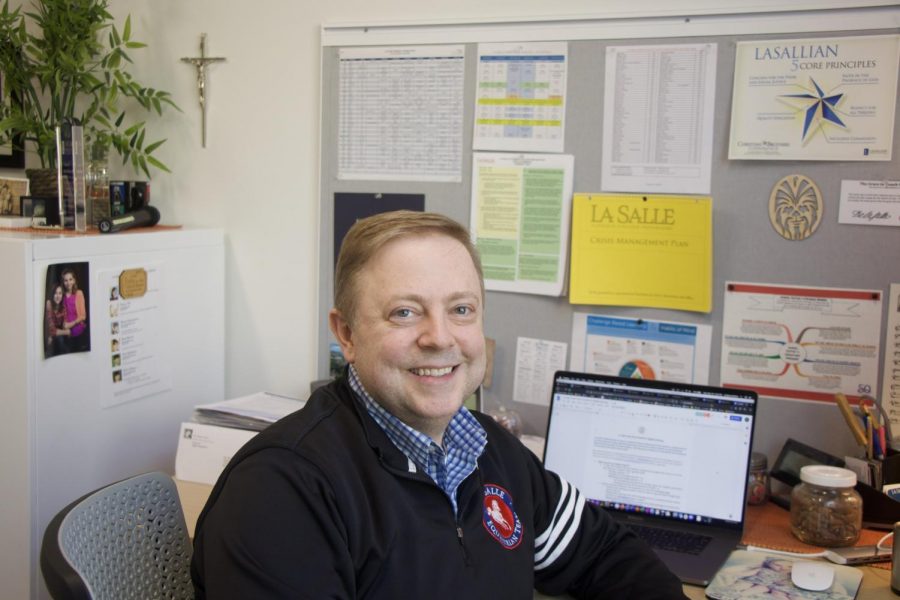
“I would’ve never thought in my career that I would be making a decision to close school for two weeks,” Mr. Kuffner said.
Since the first confirmed case of the coronavirus in the U.S., more and more cases have been emerging, and with at least one case in each of the 50 states, infections are spreading rapidly. According to the Washington Post, “this so-called exponential curve has experts worried. If the number of cases were to continue to double every three days, there would be about a hundred million cases in the United States by May.”
However, if social distancing is practiced religiously, then the explosion of cases can be dramatically slowed, preventing hospitals from being more overwhelmed than they already will be.
For many, the coronavirus began to take its effect on lives very quickly. Events and trips were canceled, sports seasons were postponed, and many restaurants closed their doors, only serving food through pick-up or delivery. Aisles in stores were emptied and public areas left deserted — more and more parts of life have been starting to turn upside-down by the hour.
“A couple weeks ago I didn’t think this would ever happen,” senior Annie Guasco said. “I had my schedule, I was going to school, and then I had track every day after school. And then I could hang with my friends in the free time [I had]. And then, within a week — a few days — everything was taken away.”
The first month of this year’s track and field season is only one thing on the list of events being canceled, an accumulation that seems to grow and change as quickly as the virus itself spreads.
La Salle events such as the Moab trip, the band’s trip to Disneyland, the baseball team’s trip to Los Angeles, and the journalism trip to Nashville have all been canceled entirely. Journey 80 will also be postponed for quite some time.
Despite how quickly so many things are changing, Mr. Kuffner and the administrative team hope to maintain a strong sense of community between all students and staff at La Salle.
Mr. Kuffner said that he will focus on clear and frequent communication and “[projecting] a sense of optimism… without minimizing the challenge that we know is facing us, and the uncertainty that’s facing us.”
“It’s not ideal,” he said. “This community is present together all the time… It’s in a time like this when we really have to come together.”
Moving forward with DLDs, aspects of the school day will be kept as close to normal as possible. Students are following a normal class schedule, just as we would on campus; prayers are being posted to Schoology every morning, just as we pray together each morning at school; and Director of Service Ms. Sarah Maher is organizing a service opportunity called a “Pop’n Drop,” where students can drop items off to donate to those in need. At the “Pop’n Drop”, librarian Ms. Ann Poteet will have a table of books set out for students to borrow.
“I think [the administrative team has] done a really good job at putting out expectations for DLD[s] and saying how long we’re going to be gone for,” senior Isabel Van Vleet said. “It made me happy this morning when I opened Schoology and there was a prayer posted and birthdays. They’re still making an effort to uphold the Lasallian community that we have at school and trying to bring that into our houses, which I think is really important… I think teachers are doing a really good job in being personable in what we do and keeping each other updated.”
And to lessen student stress levels and possible confusion, Spanish teacher Ms. Amy Gantt is attempting to make DLDs more manageable compared to previous years. “I am trying to give the most clear instructions possible,” she said. “On each screencast, I tell them what we will do each day, and then at the end, I sum up what they should have done as a way of double-checking.”
As the school heads into DLDs for the foreseeable future, teachers are working on collaborating together and developing the best ways for their students to learn. Ms. Alanna O’Brien, the Vice Principal of Curriculum and Professional Development, said that teachers “seem confident and prepared to move ahead.”
Ms. O’Brien is working with teachers, aiming to make this experience the best it can be for students.
“We want students to take care of themselves, get outside when possible, get lots of rest, and reach out to friends for support,” she said. “We don’t want digital learning to mean that students are given hours and hours of homework. This needs to be about learning, and there are many ways to make that happen.”
Although this is not how classes normally operate, Mr. Kuffner said that he feels that this is an opportunity for teachers to be creative in the ways that they are interacting with students and conducting their classes. Among teachers, he said that he feels “positive energy” and even excitement about what is planned for the upcoming weeks.
“Creativity breeds a little bit of optimism,” he said. “We’re making lemonade out of lemons. We aren’t going to be here, but we are going to make it the best it can [be].”
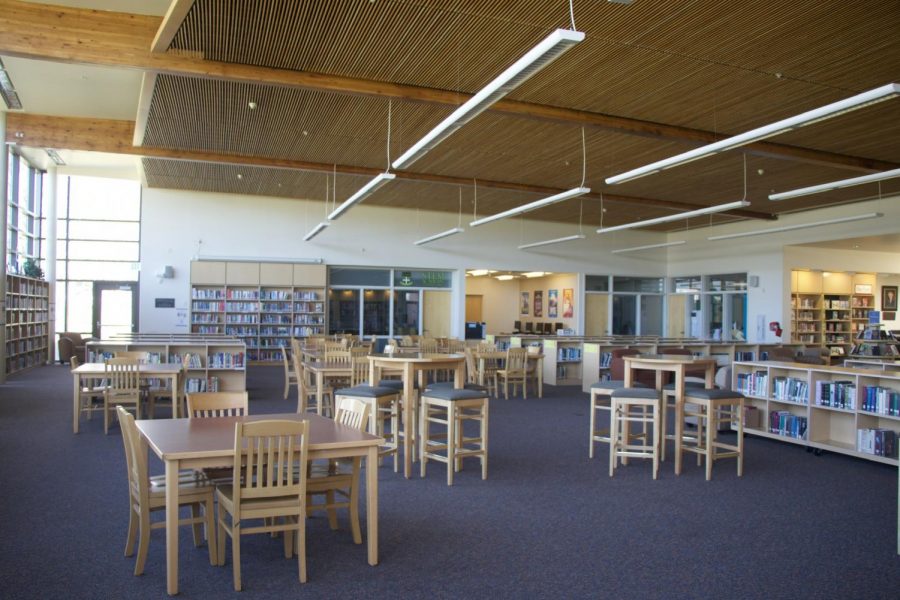
Seats at the tables in the library are usually filled by students catching up on their homework.
However, even with efforts to keep things relatively normal, students and teachers will still experience many challenges as participating in school from home simply isn’t the same, especially when communication is limited to only email, Schoology messages, and sometimes phone calls.
“Any time you remove students from the classroom and ask them to continue to learn and grow academically is of concern,” Mr. De Ieso said. “Any time you shift all of a brick and mortar school to digital learning, it’s unreasonable to think that the challenges won’t increase or arise… I worry about students being overloaded and not being able to manage the work particularly if they struggled with that before the school closed temporarily.”
Despite these concerns, though, “we are part of an uncommon community that always looks for the good in people and in any situation,” he said. “So following Mr. Kuffner’s lead, we will continue to move ahead with positivity.”
Extensive time away from campus is concerning for students academically, but that’s not the only worry that students have on their minds. For many students, school is not only a place to learn and grow, but a social haven, an environment to connect with peers and teachers.
“A lot of people rely on school for a lot of things,” Van Vleet said. “Social interaction, or eating lunch, or being able to learn and feel like you’re growing. And I think losing that, and all of the community that we have made at La Salle is going to be really hard… I think we’re all kind of feeling that together.”
Mr. Kuffner said that he has had “a number of students” reaching out to him to express concerns about how the rest of the academic year will unfold.
“The students that are reaching out to me are most concerned about, ‘I’m going to miss my friends,’” he said. “‘Are we going to have to close school for the rest of the year? What’s going on?’”
A difficult part of this situation is that no one really has answers for what this will look like moving forward. Many decisions are yet to be made: when we will return to school, whether or not prom and other activities will take place, and what the next steps are.
Prior to Brown’s announcement yesterday, the question of whether or not the time away from school will be further extended, Mr. De Ieso said, is “perhaps the million dollar question in many respects.” He said that while it’s hard to tell, he hopes that closing the school to practice social distancing will help allow us to return to campus sooner than later, and encourages that students and staff “stay realistic, but stay positive” in their mindsets.
As of now, the only plan the administrative team can go by is to continue to abide by the declarations of the state and federal governments, as well as recommendations by health authorities.
“We’re all going through it together,” Guasco said. “I feel like the teachers and administration are just as confused as we are. I think we’re all just doing the best that we can.”
Times like these are uncertain for everyone.
“That’s where we are in the same boat as everybody else,” Mr. Kuffner said. “Nothing is really solidified… The biggest challenge is, what’s the latest information?”
Mr. De Ieso shared similar sentiments.
“For many of us today, we have not faced a crisis of this nature,” he said. “It is certainly a time to put into action many of our values, our beliefs, our faith, our abilities, and our community to weather these difficult times.”
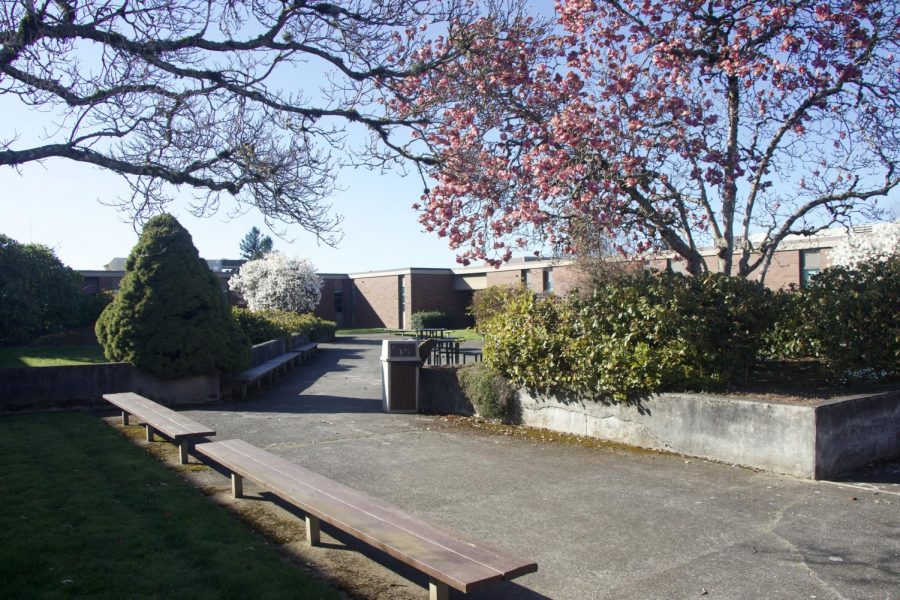
“I’m not sure how this all will pan out, but I am optimistic that we have the community to stay connected and keep the school running,” Mr. De Ieso said.
On Tuesday, March 17, the Governor of California, Gavin Newsom, announced that most schools in the state of California are likely to be closed for the remainder of the school year.
With 67 known cases and three deaths in Oregon, the virus has spread among 14 of the state’s 36 counties within just two weeks after the first case was confirmed on March 3.
Though the school will be closed for an extensive period of time, Mr. Kuffner said that “we are lucky to have an opportunity to do digital learning… We get to continue learning.” Many other schools will have to ask questions about what to do to replace lost instruction time.
Another concern to be aware of is how this time away from school will impact students’ mental health.
La Salle staff is working on developing ways to help students, despite not being able to be physically with them. The counseling staff is in communication with each other to figure out the best way to support students during this time.
“We don’t expect this to be easy for everyone involved,” Ms. O’Brien said. “We want to do everything we can to support all students… We might not be in the same building, but we can still take care of each other.”
Van Vleet, like Mr. Kuffner, puts emphasis on the importance of communication. One way to continue to take care of each other is to maintain communication within our community.
“We’re all in it together, and friends and teachers are a Schoology message or a Snapchat away, which is comforting,” she said. Despite being away from school, “in this day and age, we can still stay together.”
Mr. Kuffner expressed concern for students who are already struggling with their mental health because during normal school days, teachers and peers are more likely to be able to visibly see if students are struggling emotionally. When everyone is at home, however, it’s up to the student to reach out for help if they need it.
“It’s harder for us to see those kids who are just struggling,” he said. “Struggling in silence, struggling away from this community. So that’s, I think, the hardest part for us as a community.”
While teachers and students will work to continue to progress in classes from home, there are other staff members at La Salle who are not always in the classrooms, including the hourly employees, like the kitchen staff or the janitors.
Mr. Kuffner said that while the school is closed, the current plan is that hourly employees will continue to be paid at their normal rate. For those whose jobs do not allow them to work remotely, they are encouraged, during this time away from work, to volunteer in the community and serve others in whatever ways they can.
As for families who are economically impacted during these unprecedented times, the school is working to set aside additional operating reserves by limiting expenditures, which could go towards families who need the financial support, especially those on the monthly payment plan who might experience hardship.
“If their work stops or if their business closes… we want to and we need to be available to support families to have their students remain here,” Mr. Kuffner said.
Additionally, Kitchen Food Services Manager Ms. Kim McCarthy will be available to assist families experiencing food insecurity.
“We’ve got a bunch of food,” Mr. Kuffner said. “We will box it up and bring it over… We don’t want anybody having a problem.”
Despite all the uncertainty in our world today, the administrative team hopes to maintain a strong sense of community and positivity between staff, students, and their families.
“We’re all on this planet together and we’ve got to take care of each other and support each other,” Mr. Kuffner said. “It’s not time for us to go into a corner and shrink from this. We can rise to this and it will work out. We’ll be okay.”


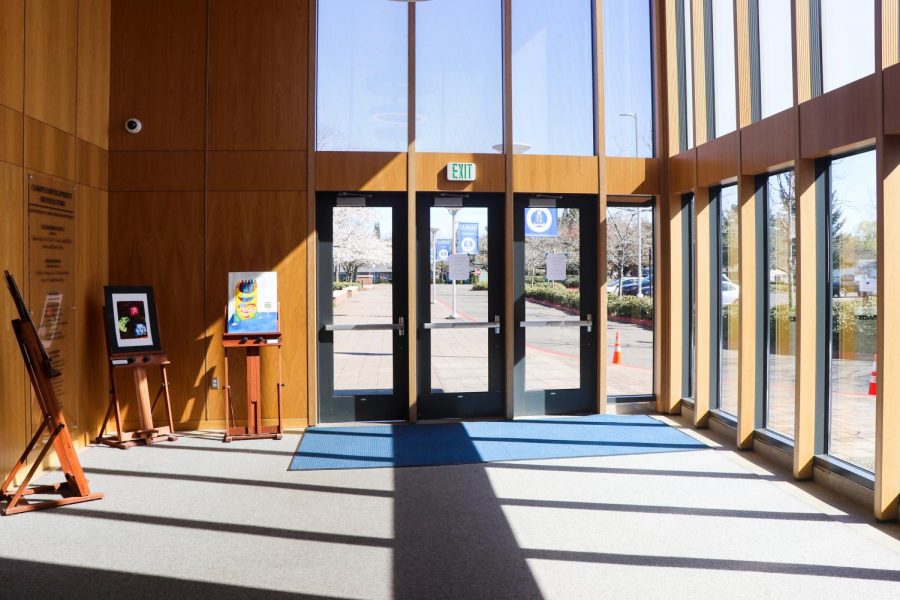
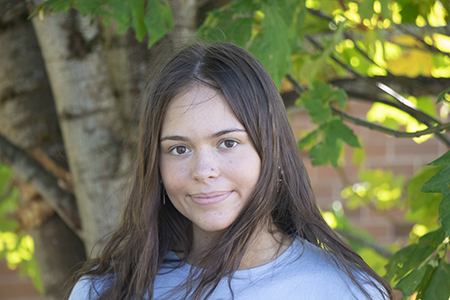
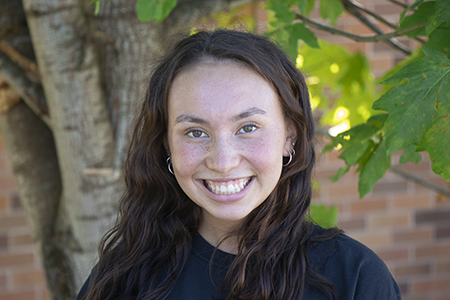



Alanna O’Brien • Mar 19, 2020 at 6:45 pm
Thanks to The Falconer for keeping things going! You are all amazing.
Long Tran • Mar 19, 2020 at 10:35 am
This is rough. Being out for about a month. This is hard.
Shannon Murdock • Mar 18, 2020 at 11:55 pm
Thank you, Mr. De Ieso (and teachers), for recognizing that DLDs are much more challenging for some kids and can can sometimes take them HOURS longer to complete the assignments!